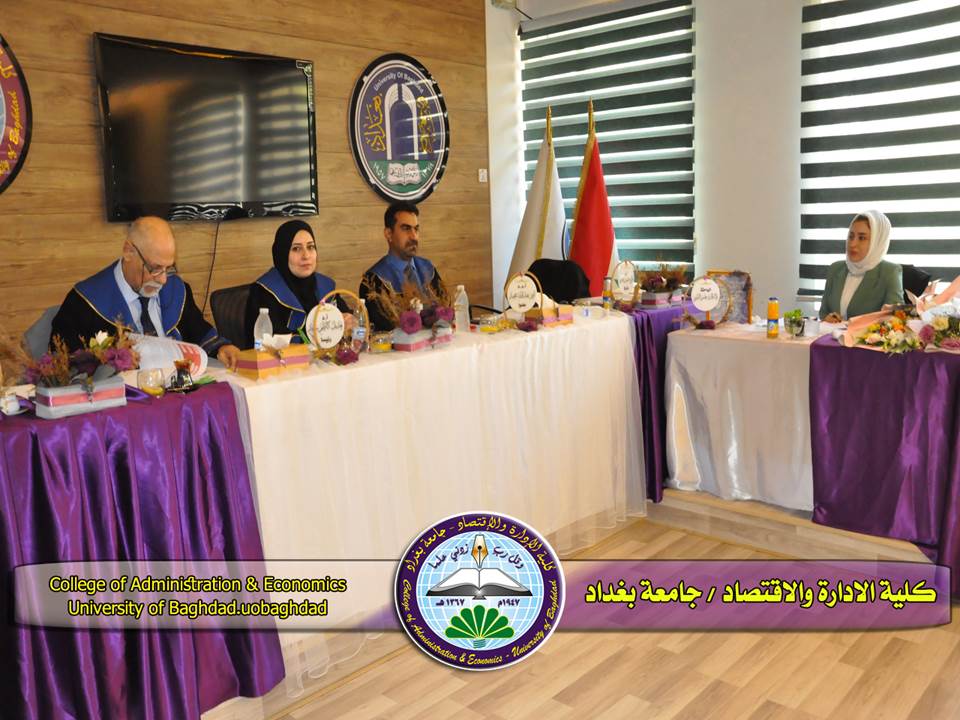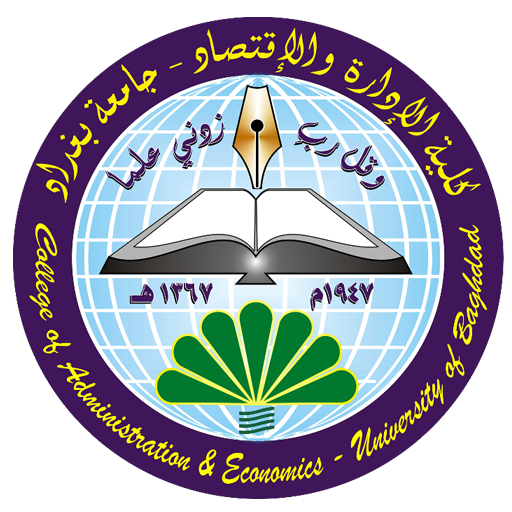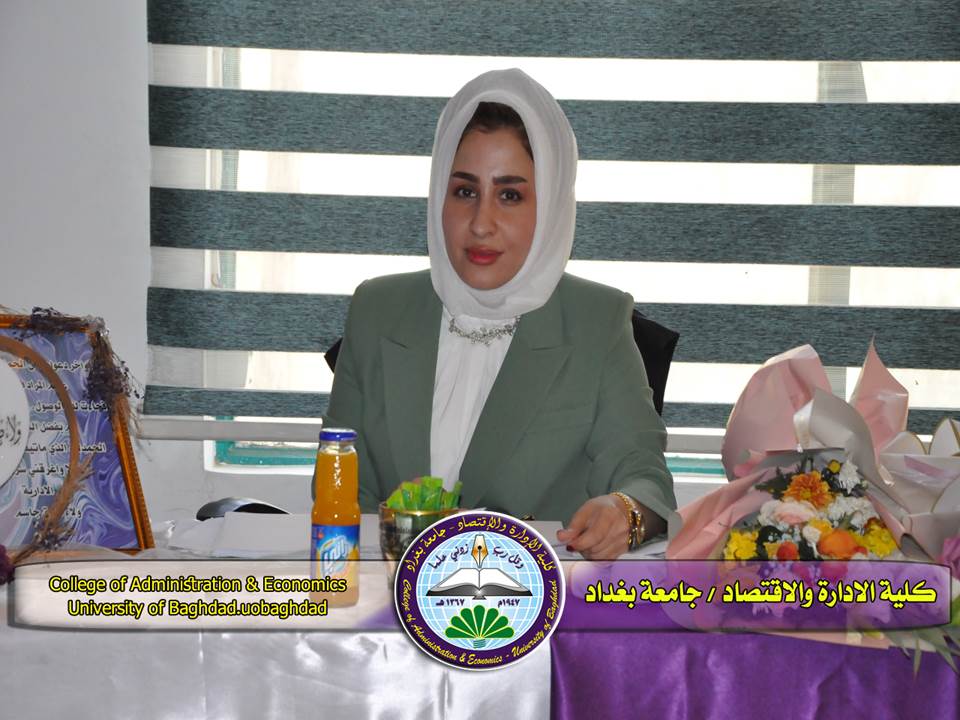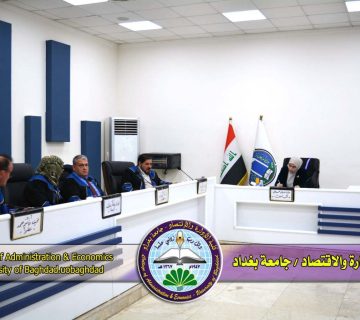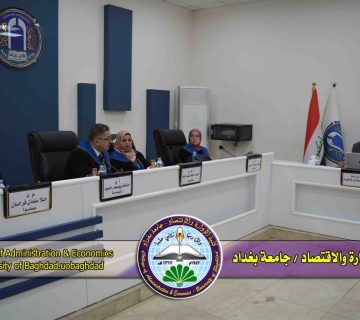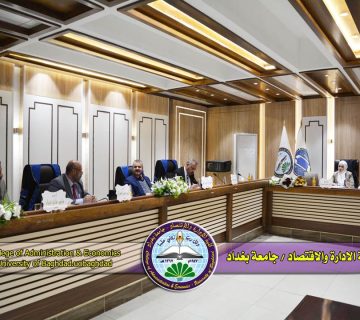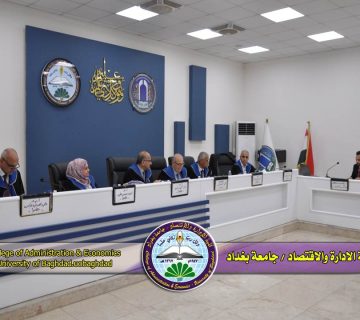The College of Administration and Economics at the University of Baghdad discussed , a master’s thesis in field of Public Administration by the student (Walaa Tariq Jasim ) and tagged with (The Impact of Green Human Resource Management Practices on Sustainable Performance / An Analytical Study in the Ministry of Environment) , Under supervision of (Prof. Dr. Ali Hassoon Fendi Al-Ta’i )
The research aims to shed light on the analysis of the relationship between green human resource practices and sustainable performance, and the extent of the impact of this relationship, which includes the extent of implementing green human resource practices within and outside the organization, and its reflection on sustainable performance, which in turn generates positive outcomes for the organization and society. The research sought to achieve a set of cognitive and applied objectives. Green practices are considered important activities at present and a fundamental resource for the success of organizations. Therefore, organizations always strive to develop during work in order to increase awareness among their employees. The main research problem was formulated in an important question: What is the level of application of green human resource management practices and sustainable performance in the Ministry of Environment (What is the nature of the relationship between human resource management practices and sustainable performance in the ministry?). To clarify the relationship between the research variables, two main hypotheses were formulated, in addition to their sub-hypotheses. The research relied on a questionnaire when collecting data on its variables. The researcher employed a set of statistical methods (standard deviation, mean, Pearson correlation coefficient, and simple regression) using Excel software through the statistical programs SPSS V28 and Amos V25. The data were collected and analyzed. The questionnaire was subjected to validity and reliability tests, and 245 questionnaires were distributed, of which 150 were retrieved. The descriptive analytical method was employed after surveying opinions. In the context of discussing the results, the research presented a set of findings, the most prominent of which was the Iraqi Ministry of Environment’s orientation towards improving sustainable performance by adopting green human resource management practices in general, as well as its dimensions of green job analysis and design, green training and development, and green work relationship and employee participation as a community. Additionally, the variables were found to be highly available, and sustainable performance was given priority over green human resource management practices in terms of application and priority.
